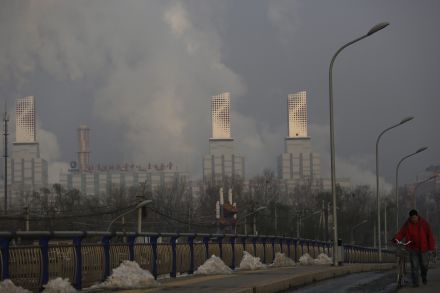Richest 10 percent people create 50% carbon emissions: Oxfam
And Oxfam accounts for “lifestyle consumption emissions” by allocating the pollution generated by goods and services to the countries where they are consumed, rather than produced, which amplifies the influence of richer countries. Ironically, the 10% richest will be the least affected by the consequences of climate change, while the 3.5 billion poorest will be the most threatened.
Since most people seem to think that the most populous countries are the greatest polluters in the world, Oxfam’s study comes to clarify that.
Although the world’s wealthiest people can put a dent in emissions by voluntary changing their consumption patterns, this won’t be enough to save the climate, Oxfam claims.
Greenhouse gas emissions are growing fastest in developing economies.
The poorest half – roughly 3.5 billion people – is responsible only for 10% of emissions. But as the IPCC has said, this is partly because developed countries “outsource” their emissions to other, poorer countries.
In another telling example, the report found that the total emissions of the poorest half of the population of China, around 600 million people, are only a third of the total emissions of the richest 10% of people in the US, some 30 million people. One challenge in the talks will be reaching an agreement with countries like India, which says it needs to burn carbon in order to further economic development for its citizens.
“But it’s easy to forget that rapidly developing economies are also home to the majority of the world’s very poorest people and while they have to do their fair share, it is rich countries that should still lead the way”.
And as the report highlights, the beneficiaries of a status quo climate deal at COP21 would be the global elite and fossil fuels giants reaping huge profits off destining the world to destruction as climate change runs off the rails. They contain high percentages of carbon and include natural gas, petroleum and coal. Women, especially those in rural communities, are most at risk, since they often depend on agriculture and have few other opportunities to make a living.
While the numbers are extremely telling, and do well to expel myths that highly populous developing countries are the world’s biggest carbon emitter, some have criticised these kinds of comparisons as being pointless.
Oxfam is also calling for the Paris deal to recognise the need to address loss and damage from the effects of climate change to which it is not possible to adapt, as well as ensure that all climate projects and actions respect human rights and gender equality.
The world’s poor may be small contributors to climate change, but are significantly impacted by it. According to a recent report by the World Bank, an additional 100 million people could be pushed back into poverty by 2030 because of climate change.








